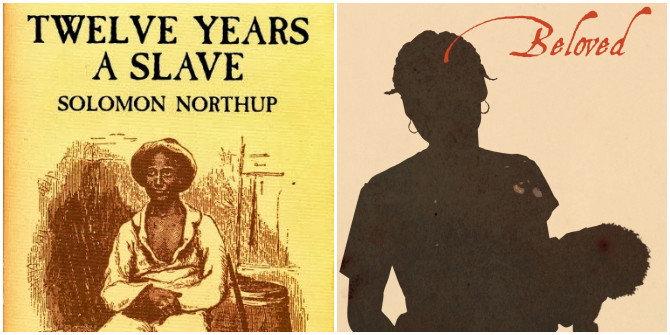 In focusing on what literature can tell us about various aspects of African American life, including housing, earnings, assets, unemployment, household violence, teen pregnancy and encounters with the criminal justice system, Paul C. Rosenblatt hopes to fill a gap in the existing literature. Engaging with novels written by African American authors, this book seeks to explore their rich depictions of African American family life, showing how these can contribute to our sociological knowledge and making the case for the novel as an object and source of social research. Janine Bradbury feels that Rosenblatt fails to open a true dialogue between disciplines in the ways that the likes of Kimberlé Crenshaw, Patricia Hill Collins and bell hooks have so expertly achieved.
In focusing on what literature can tell us about various aspects of African American life, including housing, earnings, assets, unemployment, household violence, teen pregnancy and encounters with the criminal justice system, Paul C. Rosenblatt hopes to fill a gap in the existing literature. Engaging with novels written by African American authors, this book seeks to explore their rich depictions of African American family life, showing how these can contribute to our sociological knowledge and making the case for the novel as an object and source of social research. Janine Bradbury feels that Rosenblatt fails to open a true dialogue between disciplines in the ways that the likes of Kimberlé Crenshaw, Patricia Hill Collins and bell hooks have so expertly achieved.
 The Impact of Racism on African American Families: Literature as Social Science. Paul C. Rosenblatt. Ashgate. February 2014.
The Impact of Racism on African American Families: Literature as Social Science. Paul C. Rosenblatt. Ashgate. February 2014.
Those of us invested in cross-departmental and collaborative models of knowledge-exchange in the arts and humanities here in the UK might be drawn to Paul C. Rosenblatt’s latest book, The Impact of Racism on African American Families: Literature as Social Science.
Drawing upon 27 novels by 20 different African American writers spanning the Harlem Renaissance to the 21st Century (and helpfully included as a reading list at the back of the book), Rosenblatt extends arguments that these texts can be a valid and legitimate source for social scientific enquiry into the black family. With reference to multiple works by James Baldwin, Ernest Gaines, Toni Morrison and Alice Walker, and novels by Sarah Wright, Dorothy West, Ann Petry and Paule Marshall, the author argues that these writers can help us better understand the specific ways that racism and discrimination has affected the African American family unit.
Rosenblatt, Professor Emeritus of Family Social Science at the University of Minnesota, USA, and author of numerous books including Shared Obliviousness in Family Systems (2009) and Two in a Bed: The Social System of Couple Bed Sharing (2007) is an expert in ‘family systems theory’ which posits, as he explains in his introductory chapter ‘that family members are interconnected’ and ‘what affects one family member will affect others’ (p.8). The author uses African American literature as a testing-ground for some of this theory.
Rosenblatt’s chapters address hugely topical and relevant themes, including colourism and the separation of family members, and his work is timely in its suggestion that these themes have the potential to transcend boundaries. Indeed, media coverage of British director Steve McQueen’s film adaptation of Solomon Northup’s autobiographical slave narrative Twelve Years a Slave (1853) attests to the power of black writing to speak to a broad range of art forms, genres, and academic disciplines including history, literature, film, sociology and contemporary politics.
This work has been very well received by academics outside of the literary arts and the author should be commended on broadening the field of research within his own discipline. Kathleen R. Gilbert from The School of Public Health at the University of Indiana describes the text as ‘a powerful exploration of the private world of African American families’ and Ester Shapiro, from The Department of Psychology at the University of Massachusetts describes Rosenblatt’s work as ‘innovative, illuminating’ and ‘indispensible’, suggesting that for social scientists at least, the author ‘inspiringly challenges […] academic boundaries’ (Back Matter).

This said, while taking much from the world of African American literature, this book offers little in return and fails to effectively open a true dialogue between disciplines in the ways that other critics, including Kimberlé Crenshaw, Patricia Hill Collins and bell hooks have so expertly achieved and there is a lack of fluency in the discourse of literary criticism.
In his introductory chapter, “Novels as Resources for Understanding the Impact of Racism on African American Families”, Rosenblatt offers a convincing and justifiable argument for why African American-authored novels can ‘fill a gap in the social science literature concerning how racism can come home to everyday African American life’, and he discusses the methodological implications of ontology, truth and narrative (p.2). However, the chapter is ultimately limited by the author’s adherence to the problematic, ‘empirical’, and ultimately value-laden language of ‘reliability’, ‘subjectivity’, and ‘reality’ (literary critics and black feminists would cringe at the thought of anybody assessing whether Toni Morrison’s work is ‘reliable’!).
The author’s justification for his text selection is similarly problematic. For example, his decisions to use university syllabi as ‘a measure of the resonance and validity of the books’, his observation that ‘older novels were quite acceptable’ to him, and his reflection that he ‘chose not to use eight genre novels (science fiction, western, or detective novels, plus a novel written for children)’ because ‘their narrative might be too responsive to canons about what is a good story in their genre’ fails to take into account the debates within literary study about the constructedness of the literary canon, the radical potential of genre fiction to ‘write back’ to hegemonic nature of canon formation or the subjectivity involved in determining ‘validity’ of literature. Indeed, the author’s methodology chapter only draws attention to the biases of his study rather than rendering it more ‘objective’ in any sense of the word.
Certainly, African American literary study requires a methodological, theoretical, and disciplinary dexterity that typically transcends the arguably arbitrary boundaries between the social sciences and the arts and humanities. The works of sociologist W.E.B. Du Bois, slave narratives, The Moynihan Report, and a working knowledge of historiography of slavery from Ulrich B. Philips to John Blassingame are all required reading for researchers of the African American experience. Although there are some peculiar omissions in the text’s bibliography (for example, Patricia Hill Collins), the author is nothing if not well-read in multi-disciplinary studies of the African American family.
While Rosenblatt’s indexing of literary extracts will serve as an incredibly useful departure point for scholars of a variety of disciplines (and Rosenblatt compiles some wonderful research on the political motivations of authors from Dorothy West to Zora Neale Hurston), the overwhelmingly descriptive and explanatory tone of the writing offers little beyond the obvious to literary scholar [for example, ‘In some novels the things done by whites to keep African Americans poor are not explicitly stated, but in some they are’ (p.69)]. Out of disciplinary necessity, Rosenblatt forsakes the literary for the literal and disavows the very ambiguity and nuance that literary scholars ‘feast’ on. This is a book-length study of the ‘whats’ of African American literature (‘what happens in the text?’) rather than the hows and whys that we typically reward in the work of our literature students (‘how has the writer created this affect’ and ‘why is this significant?’).
However, as useful as this work is for social scientists (and I have no doubt that it is), for literary scholars, this text ultimately offers a peculiar insight into the limitations rather than the potential of interdisciplinary discourse.
—————————————
Janine Bradbury is a Lecturer in Literature at York St John University. She is also a doctoral researcher and Teaching Associate at The University of Sheffield, where she is currently writing up her thesis in African American women’s writing. Janine is a member of The Runnymede Trust’s Emerging Scholars Forum, has written for The Guardian, appeared on BBC Radio 4 and can be followed on Twitter @janinebradders. Read more reviews by Janine.








1 Comments